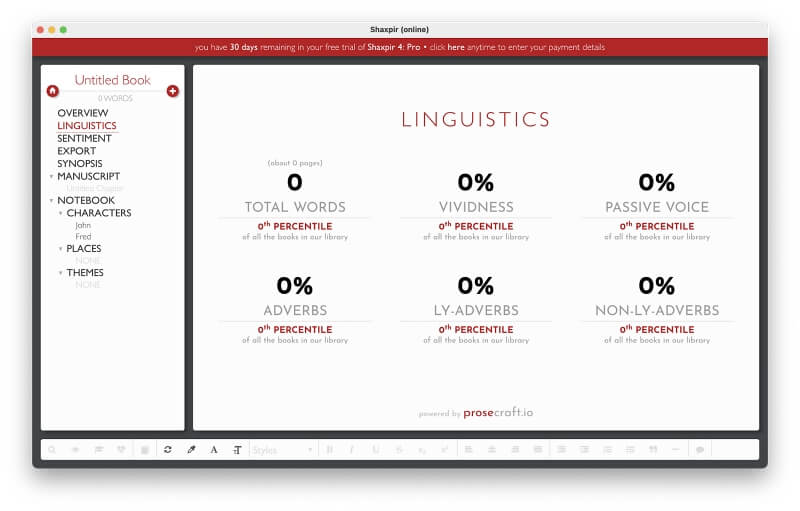
I have the complete history of everything I've ever written.Īnother example: because formatting is reified in Markdown, I can grep for it. Maybe that's a bit academic, but you get the point. I can confirm, for example, how long a typo has existed in my book by looking at the Git history. The benefit is the rest of the pure text toolchain. Gaiman, King to give two examples discussed in this thread) up to wanting word processors with all bells and whistles - it's very much down to taste. At the same time I know novelists range from the pen and paper type (e.g. > No offense but you don't sound like someone who writes a lot?Īs someone who has written several novels, that's how your comment came across to me.

It'd be nice not to have to, but I'd take that over having to work in a word processor during writing any day. The proportion of my time that takes is tiny. Then, sure, I review those changes in Librewriter. I do one export when I'm done with my first draft, and then I edit and do one more export before handing it over to my proofreader. I don't need to send and receive documents with no conversion needed. I use lots of macros, but exactly zero of them for my novels. Macros are supported in pretty much every editor I've ever used for plain-text.

It happens after I've converted my document and sent it off. Grammar checking and corrections is my proofreaders job, not mine. Some people may need "special characters" they can't type, but I have keybindings for the characters I use. If you format your own, then you're already in an small niche. It takes place after both my editor and my proofreader have completed their jobs, at which point I don't touch the file any more. Writing a table of contents is my formatters job, not mine.


 0 kommentar(er)
0 kommentar(er)
